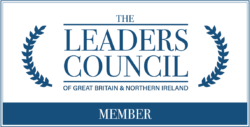As we approach the coming General Election, there will be much talk about how to sort out the economy, immigration, cost of living and housing.
The IAB is an Awarding Body with one eye firmly on the future and we feel that education must take centre stage. Alongside its sister organisations, which together form the IAB Group, we are collectively promoting a vision where education is directly connected to skills.
This has a two-fold benefit; primarily enhancing the students career opportunities and earning potential. Secondly, we aim to support employers by tackling the chronic skills shortage in the labour market.
In a post Covid world, attitudes and technology such as AI are driving fast-paced change. Educational bodies need to adapt to the new landscape as demand for traditional academic learning is falling at an alarming rate and the current vocational training programmes seemingly have not successfully replaced the original apprenticeships.
The IAB Group believes in lifelong learning and has aligned itself with the UN’s Sustainable Development Goal 4 – Quality Education.
With all this in mind, these are the four key measures we would like to see implemented by any new incoming administration.
- The Introduction of Micro Credentials in the Higher Education sector.
Micro credentials are a form of certification that demonstrate mastery or competence in specific skills or knowledge areas. Unlike traditional degrees which cover broad fields of study over several years, micro-credentials focus on narrower, more targeted areas and can often be earned in a much shorter time. They are typically awarded by educational institutions, professional organisations or online platforms.
They would not normally constitute an award in their own right, but they have standalone value and can also contribute to a recognised qualification. They also widen access to learners who might not have considered a more traditional approach to achieving a qualification, as well as potentially assisting with meeting skills needs for employers and learners.
There are benefits for everyone. Employers see it as an affordable investment in upskilling and retaining staff – which is particularly important in an ever-changing business environment. Meanwhile employees are paid to learn and can build a degree/ diploma etc over time. As well as acquiring up-to-date and relevant industry-specific skills.
- More emphasis on ESG in the finance sector
At Cop27 it was announced that International Reporting Standards would be mandated across the globe. This requires companies to report their ESG data in a unified format within their financial accounts thereby allowing companies to be comparable and held accountable. This now means that finance professionals will be leading the conversation around sustainability and therefore offers a range of opportunities to grow their careers and practices..
Demand for the IFRS (International Financial Reporting Standards) Qualification continues to grow internationally but the UK is lagging behind therefore we would like to see more awareness of the importance of this duty communicated.
- Raising Standards in the Tax Advice Market
The IAB advocates and supports the Raising Standards in the Tax Advice Market
consultation: strengthening the regulatory framework and improving registration.
At a time when HMRC is leaning heavily on the finance sector to promote and implement the Government’s move to digitalisation it would seem prudent that bookkeepers, advisers and accountants providing ‘enabling’ services which are important for enterprise, business and government should be dependably professional and properly qualified.
Currently this is not the case; there is no effective register, professional standards are varied and opportunities for bad or incompetent practice are apparent.
- Better financial literacy at schools.
Too few students leave with the necessary knowledge to run a basic household budget, let alone a small business. We have recently been running a free online workshop across libraries in Kent called “Managing your Finances” where concepts such as how to read your payslip and understanding your Household Budget are taught.
We advocate that these basic financial skills should be included in the National Curriculum in all secondary schools.
Sarah Palmer, CEO of the IAB, says: “This General Election is a good time for the country to take stock of what is happening with the economy and to look ahead at the next five years.
“The IAB has always been passionate about supporting and educating our members. We are also looking to the future and recognise that we need to support both those entering the workplace and those already into their careers with the type of high quality training and qualifications they need to compete in what is an ever-changing marketplace.”
译文:
随着即将到来的大选的临近,将有很多关于如何解决经济、移民、生活成本和住房问题的讨论。
IAB是一个着眼于未来的认证机构,我们认为教育必须成为中心。我们与共同组成IAB集团的组织一起,共同推动教育与技能直接相关的愿景。
这有双重好处;主要提高学生的就业机会和收入潜力。第二,我们的目标是通过解决劳动力市场长期存在的技能短缺问题来支持雇主。
在后新冠肺炎时代,人工智能等态度和技术正在推动快节奏的变革。教育机构需要适应新的形势,因为对传统学术学习的需求正在以惊人的速度下降,而目前的职业培训计划似乎没有成功取代原来的学徒制。
IAB集团信奉终身学习,并与联合国可持续发展目标4——优质教育保持一致。
考虑到所有这些,这是我们希望看到任何新上任的政府实施的四项关键措施。
在高等教育部门引入微型证书。
微型证书是一种证明在特定技能或知识领域掌握或能力的证书形式。与几年内涵盖广泛研究领域的传统学位不同,微型证书专注于更窄、更有针对性的领域,通常可以在更短的时间内获得。它们通常由教育机构、专业组织或在线平台颁发。
它们本身通常不会构成奖项,但它们具有独立的价值,也可以为公认的资格做出贡献。它们还扩大了那些可能没有考虑采用更传统的方法获得资格的学习者的机会,并有可能帮助满足雇主和学习者的技能需求。
每个人都有好处。雇主认为这是一项负担得起的提高技能和留住员工的投资,这在不断变化的商业环境中尤为重要。同时,员工可以获得学习报酬,并可以随着时间的推移获得学位/文凭等。以及获得最新和相关的行业特定技能。
金融部门更加重视ESG
在《联合国气候变化框架公约》第二十七次缔约方大会上,宣布将在全球范围内强制执行《国际报告标准》。这要求公司在其财务账户中以统一的格式报告其ESG数据,从而使公司具有可比性并承担责任。这意味着金融专业人士将领导围绕可持续性的对话,从而为他们的职业生涯和实践提供一系列发展机会。。
国际上对IFRS(国际财务报告准则)资格的需求持续增长,但英国落后了,因此我们希望看到更多人意识到这一义务的重要性。
提高税务咨询市场的标准
IAB倡导并支持提高税务咨询市场的标准
协商:加强监管框架和改进登记。
在英国税务海关总署严重依赖金融部门来推动和实施政府数字化举措之际,提供对企业、企业和政府重要的“扶持性”服务的记账员、顾问和会计师应具有可靠的专业性和适当的资质,这似乎是谨慎的。
目前情况并非如此;没有有效的注册,专业标准参差不齐,不良或不称职的执业机会显而易见。
提高学校的金融知识。
很少有学生在离开时掌握了管理基本家庭预算所需的知识,更不用说小企业了。我们最近在肯特郡的图书馆举办了一个名为“管理你的财务”的免费在线研讨会,教授如何阅读工资单和理解家庭预算等概念。
我们主张将这些基本财务技能纳入所有中学的国家课程。
IAB首席执行官Sarah Palmer表示:“这次大选是国家评估经济状况并展望未来五年的好时机。
“IAB一直热衷于支持和教育我们的会员。我们也展望未来,认识到我们需要支持那些进入工作场所的人和那些已经进入职业生涯的人,为他们提供在不断变化的市场中竞争所需的高质量培训和资格。”





